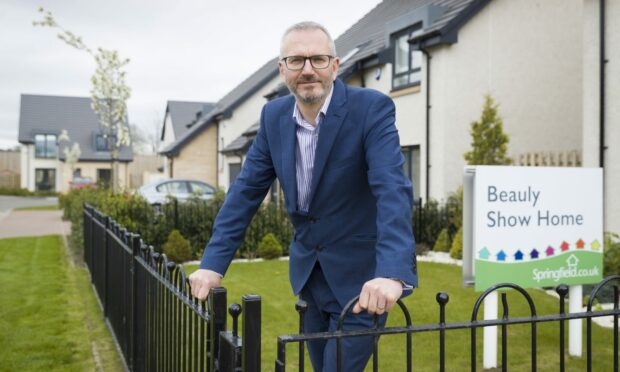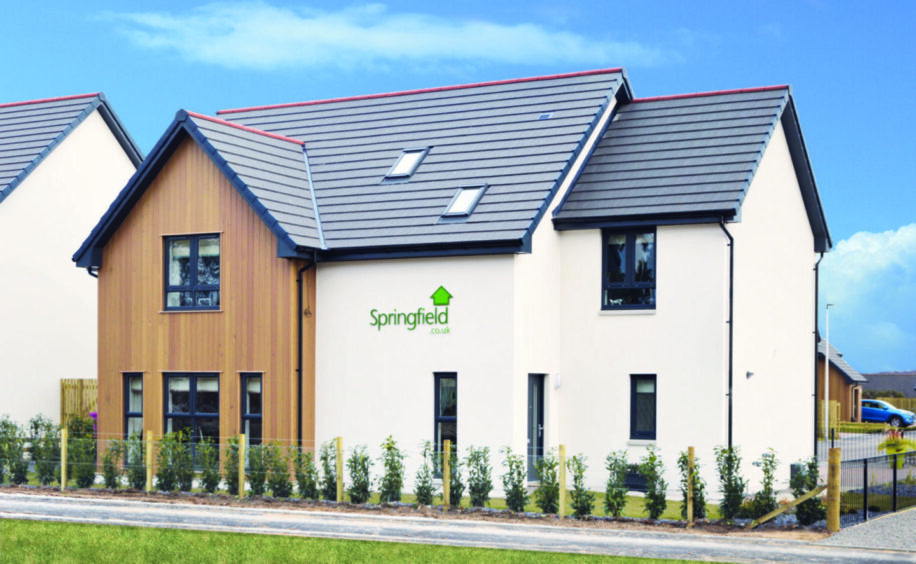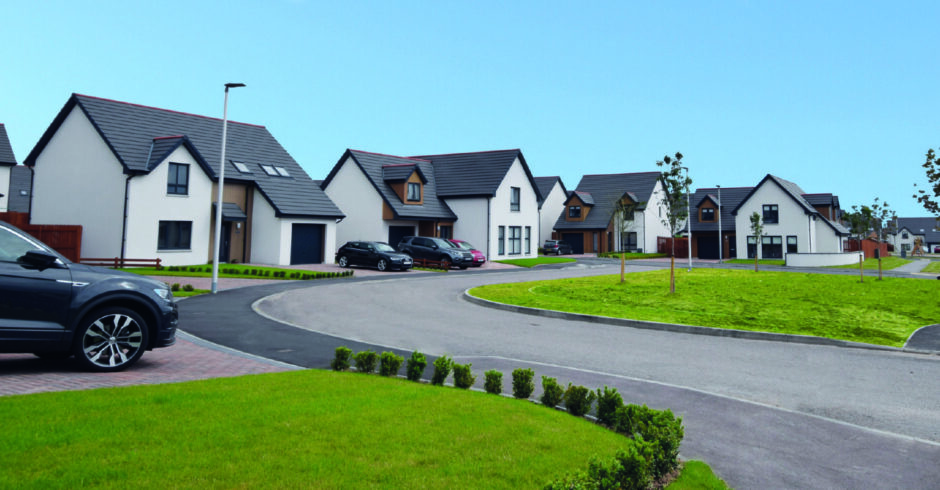Moray housebuilder Springfield Properties has said it is approaching new site openings with caution but seeing signs of a possible recovery in demand for homes.
Chief executive Innes Smith added: “While it is too early to call a recovery, the green shoots we are experiencing and which are being seen across the industry, through increased reservations and visitor levels, are encouraging.”
Shares in Alternative Investment Market-listed Springfield slid nearly 12% this morning, however, as investors digested the Elgin-based firm’s latest results.
The stock picked up in later trade but is still almost 5% lower than it was at yesterday’s market close.
The foundations of Springfield remain strong. We offer high quality, energy efficient homes in popular locations across Scotland and have a large land bank, over half of which has planning.”
Innes Smith, chief executive, Springfield Properties
Springfield said revenue rocketed 85% in the six months to November 30 2022, to £161.9 million, compared with a year earlier.
But statutory pre-tax profits fell 4.8% to £5.9 million, hit by increased bank interest payments and £600,000 of exceptional costs from an acquisition during the period.
The company highlighted significantly better operating profits, up by 20.6% at £8.2m.
And it said it delivered a record number of new home completions in the latest period.
These totalled 673, up from 459 a year earlier, with private housing activity and contributions from two recent acquisitions cited as the two main drivers of growth.
Springfield swooped for Tulloch Homes in late 2021, snapping up its Inverness-based rival in a deal worth £56.4m.
And last June the Moray firm announced expansion in the central belt via its acquisition of the housebuilding arm of Glasgow-based Mactaggart & Mickel in £46.3m deal.
Summing up the first half of Springfield’s trading year, Mr Smith said it had been a “challenging” period for the whole housebuilding industry, with significant headwinds.
These “largely offset the excellent growth we achieved in private housing,” he added.
Mini-Budget derailed housing market
Springfield’s CEO said the UK Government’s mini-Budget in September reduced the confidence of homebuyers and increased the cost of new mortgages “significantly”.
He continued: “Our affordable housing business was greatly impacted by build cost inflation.
“And, with the Scottish Government still to review its affordable housing investment benchmark, it is not currently possible to continue building affordable homes at the same pace as we have in the past.”
Springfield has also halted plans to deliver new homes for the private rented sector in the wake of the Scottish Government’s temporary rent freeze.
And while one land sale to another housebuilder was achieved by the company during the six months to November, Mr Smith said an industry-wide stalling of these kind of deals meant Springfield was unable to “secure acceptable value for additional sales”.
He added: “We have taken decisive action in response to these conditions.
‘Excellent platform’ for growth
“We’ve made a strategic land sale on good terms, reduced land buying activity and are approaching new site openings with caution.
“The foundations of Springfield remain strong. We offer high quality, energy efficient homes in popular locations across Scotland and have a large land bank, over half of which has planning.
“This, combined with the actions we are taking as we focus on reducing our net debt position, provides an excellent platform from which we can take advantage as the markets continue to improve.”



Conversation